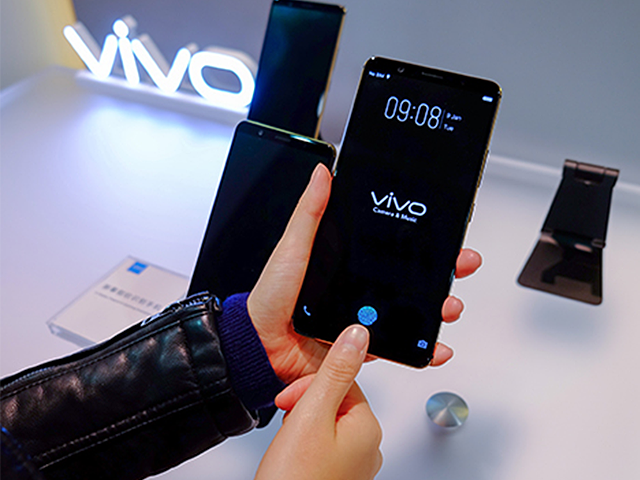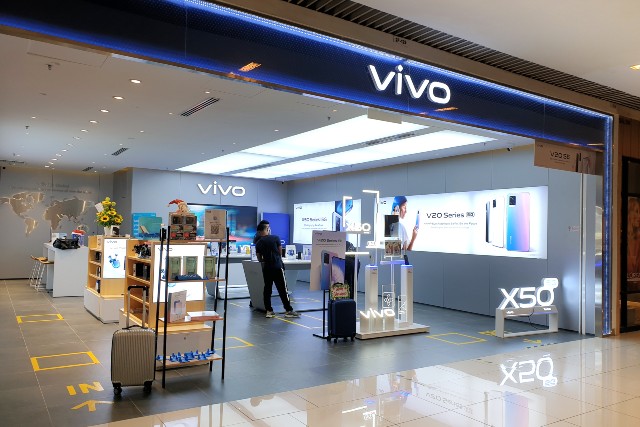

Chinese vendor Vivo is trying to make a household name for itself in the UK after entering the market last year, but the company will need to be able to carve out its own individual niche, say analysts
Apple and Samsung are household names everywhere you go, but far less so is Chinese vendor Vivo – yet the company hopes to change that in markets including the UK.
Vivo has been around since 2009 when it launched in its native China, but only started expanding internationally in 2014.
Having found recent success by holding among the top positions in the Chinese smartphone market, as well as being the second-placed vendor in India and leading in Indonesia, Vivo looked to expand even further more recently.
The vendor only launched in both the UK and Europe a year ago – amid the pandemic, no less – and has released phones including the X60 Pro 5G, V21 5G and Y52 5G.
Vivo’s chief operating officer, Alex Wu, says the company has plans to make itself a household name across the UK, but can the vendor live up to expectations after major success across Asia?
Global brand
Speaking to Mobile News, Wu said that being a global brand means having a portfolio that can meet a variety of needs.
“Our current flagship phone is the X60 Pro 5G, which delivers a professional camera experience,” he says. “For the generation of online content creators, we have the V series – such as the V21 5G, with an outstanding 44MP front-facing camera.
“For those who want a future-proof phone that can keep up with their everyday life and not cost a small fortune, we have the impressive Y52 5G.”
Despite being a relatively new brand and only recently expanding to global markets, Vivo was the fourth-placed smartphone brand worldwide by shipments in the third quarter of 2021, according to Counterpoint Research – and hopes to keep growing.
‘Progressive’
“We at Vivo see ourselves as a progressive global brand that is committed to connecting users around the globe through a human- centric approach to the design of exciting and innovative smartphones that truly add value to the lives of our consumers,” says Wu.
This consumer-driven approach will be followed in the UK too, says Wu. Citing video content as becoming increasingly popular among the country’s consumers, he points to the X60 Pro 5G as a phone that has been launched with technology allowing users to capture super-steady video.
“By listening to consumers and understanding their needs, we plan to build a business model in the UK which answers the unmet needs of consumers,” says Wu. He adds that having a great camera is important to UK consumers, referring to how Vivo seeks to fulfil these needs too. “To deliver the best possible camera we can, we have established a strategic long-term collaboration with Zeiss, a pioneer in optics and optoelectronics,” says Wu. “It’s this combination of hardware and software expertise that allows us to deliver innovations such as the Gimbal 2.0 [stablisation technology] seen on the X60 Pro 5G.”

Back of the net
Wu refers to other types of partnerships that are also important for promoting the brand. “We have a range of exciting partnerships that will stand us in good stead in 2022 and beyond,” he says. Some of the key partnerships are in football.
Vivo became official smartphone provider for the delayed UEFA Euro 2020 football tournament that took place this year and will also sponsor the 2024 edition, as well as sponsoring the FIFA World Cup in 2018 and 2022.
Furthermore, Wu says it’s important for Vivo, as a global brand, to have responsibility in the communities within which it operates.
As part of this, the vendor has become a partner of The Savage Foundation, which supports grassroots football and helping youngsters gain free access to the support.
Will all this be enough to prove successful in the UK? Uswitch mobile expert Ru Bhikha believes Vivo can be successful, but it depends on how the company carries out its consumer targeting.
“It’s important for Vivo to understand its potential target market, and analyse any behaviour and shifts in trends in the UK mobile market, as the country is completely different to the rest of Europe,” says Bhikha.
“With that in mind, Vivo will need a lot of support from mobile network operators, and to really lean on its partnership with Zeiss as a unique selling point.”
Long-term awareness
CCS Insight chief analyst Ben Wood echoes what Bhikha believes about the partnership with Zeiss, while adding that Vivo needs to create long-term brand awareness.
“Vivo has the financial resources and scale to make an impact in Europe and the UK,” says Wood.
“Its commitment to building its brand was clear from its lavish sponsorship of the UEFA Euro 2020 tournament.
“The big question is, how long can it sustain that type of investment? To secure a long-term position in the market, it is going to have to make a sustained, multi- year commitment backed with an enormous marketing budget.”
Wood also expresses concern that Vivo smartphones may not be ranged alongside sister brand Oppo, with the two both owned by Chinese multinational BBK Electronics, as there are only so many available slots with operators and retailers.
But Wu believes that Vivo’s human- driven approach will help ensure that it gains traction in the UK by delivering a “sustainable growth model”.
Multiple brands
Not only does BBK own the Vivo and Oppo brands, but also further smartphone brands in the shape of OnePlus and Realme.
The parent company is one of the world’s largest smartphone makers, being the biggest phone maker by volume in the third quarter of this year, according to CCS Insight – with Oppo, Vivo and Realme shipping a combined 85 million units.
Meanwhile, the company took a fifth of market share in 2020, according to Counterpoint Research.
Wu thinks the potential challenge of differentiation for a number of brands that have the same parent is dealt with effectively by Vivo and the others having varying focuses.
And Bhikha says this can work in the UK too, even if the situation poses a challenge. “Having too many brands is not a bad thing, so long as the parent is able to carefully carve out audiences for each and avoid crossover or cannibalisation of innovation.
“This is not an easy task with so much competition between different manufacturers.
“For this to work, it’s very important for brands to identify their differentiation, their unique selling points, and how they want to measure success and strategise independently of each other.”
Wood also thinks the model can work. “The group seems to have managed to use its different brands to target different segments of the market and in the mobile phone business, economies of scale are key to success,” he says.
However, he also cautions, “the danger with multiple brands is that the message can become diluted.
“I do sometimes wonder if just focusing on either Oppo or Vivo would have more impact than both having to build a brand in its own right.”

Y52
But Vivo is hoping to make tracks as an individual brand, having made steps such as teaming up with MVNO Virgin Mobile on the Y52 device.
“We launched the Y52 5G via Virgin Mobile UK in October, and are working hard with them to create amazing value for the UK consumer,” says Wu. “As a matter of fact, you can now buy the Y52 5G and claim a £100 Amazon voucher.”
As Vivo seeks to gain traction in the UK market over the coming months, it may face some challenges.
The usual problem vendors come up against is how they can tackle certain segments of the smartphone market and promote products to reach a wider audience. But this year, there is the added problem of the chip shortage that has impacted many industries including smartphones, resulting in a decline in shipments and supply volumes.
That may result in a further challenge to Vivo carving out its own niche, says Wood. “Like all players, Vivo will be facing the current pain around component supply and there will likely be tensions within the BBK Electronics group as to who gets priority,” he says.
“Furthermore, it has the long-term challenge of continuing to build its brand on a global basis, which will require an enormous investment.”
Making a mark
Vivo will also have to prove itself against already very well-established brands in the UK.
“Like other brands in the UK outside the powerful duopoly of Samsung and Apple, they have a much harder job of winning the hearts of consumers when the time comes to switching handsets,” says Bhikha.
“Buying a phone has to be a carefully considered purchase, especially when you start factoring in price and networks as an area of differentiation.”
Yet despite the challenges, Wu remains highly optimistic about Vivo’s future potential in the market, driven by its consumer-centric approach.
“Vivo plans to win the hearts and minds of the UK consumer, becoming a trusted brand through delivery of innovations which truly make sense and adding value to the everyday lives of consumers,” he says.
“We will maintain our focus on doing the right thing the right way, and in doing so plan to become a much loved and respected brand in the UK.”






